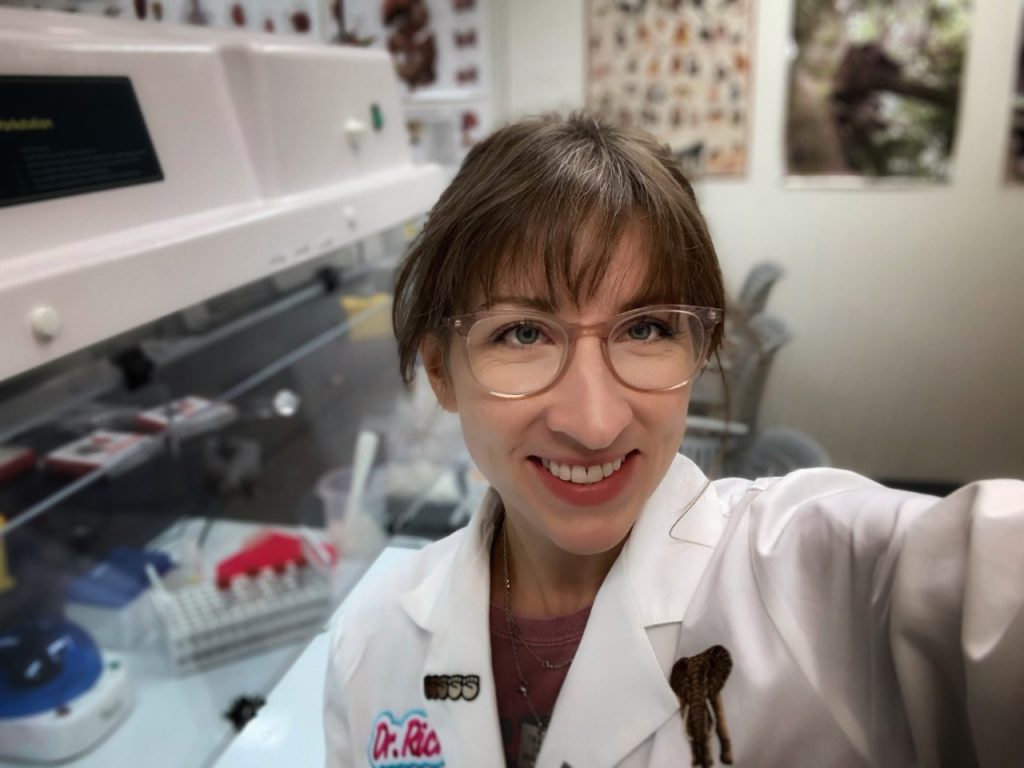Otterbein Zoo and Conservation Science Professor Gives Students Valuable Research Opportunities Remotely
Posted Jul 30, 2021
By Madelyn Nelson ‘23
Alicia Rich knows the value of gaining experiences outside of the classroom. Rich, an assistant professor of Zoo and Conservation Science, began teaching at Otterbein in the fall of 2020 and immediately wanted to incorporate field research into her curriculum.
Despite starting her Otterbein career in the middle of a pandemic, Rich remained committed to helping students gain valuable research opportunities. Even though in-person classes were limited, her students studied real animals using camera trap research. The Department of Biology and Earth Science purchased 10 camera traps for students to study animals at the Ohio Wildlife Center.
“In Introduction to Wildlife Rehabilitation, we worked out a plan where groups of students proposed different research projects, told me how many cameras they needed, what settings they wanted to use, and then set-up their cameras,” said Rich. “Some groups put cameras inside the exhibit and observed behavior of captive animals, another group monitored wildlife comings and goings, and one group captured wild and captive animal interactions.”

Since the camera traps were so beneficial, the Department of Biology and Earth Science is investing in more traps and more advanced technology for the upcoming academic year.
Each group’s camera trap research yielded different results and taught the students something that they could not have experienced from a textbook. The camera trap footage provided a unique learning opportunity when students could not travel to the wildlife center to study the animals.
“That was such a success that this year we purchased two more camera traps, lock boxes so we can put them in less-secure areas, and kestrel data loggers that monitor temperature, humidity, and lots of climate data,” said Rich.
One of Rich’s long-term goals is to have a permanent camera trap monitoring program at a field site in Uganda. The trap would include a grid of camera and an on-site manager who routinely uploads the data into a cloud drive for students at Otterbein to study.
Entering into the spring 2021 semester with pandemic guidelines and challenges, Rich brainstormed experiential learning opportunities with Associate Professor Anna Young, director of Otterbein’s Zoo and Conservation Science program. Rich recalled asking herself “What if we threw out the old classroom? How can we innovate?’”
That thought eventually created Rich’s Working with Primates special topics course which included guest lectures from experts in the field. Instead of the expert giving a lecture, the students came up with their own questions, conducted background research on the guest, and
created an interview script to guide the conversation with the expert. Each week, two students acted as the Zoom moderators.
Despite adapting to new course formats and instructing in a virtual world, Otterbein students were not held back from real-world opportunities. Rich and the rest of her biology colleagues pushed limits to ensure students received an excellent education with real-world experiences.
“Our students studied wildlife and met with trained professionals without ever leaving the Science Center on campus. I think it’s really important to have opportunities where every single student has the same or increased access to hands-on learning experiences, whether in-person or virtually,” Rich said.